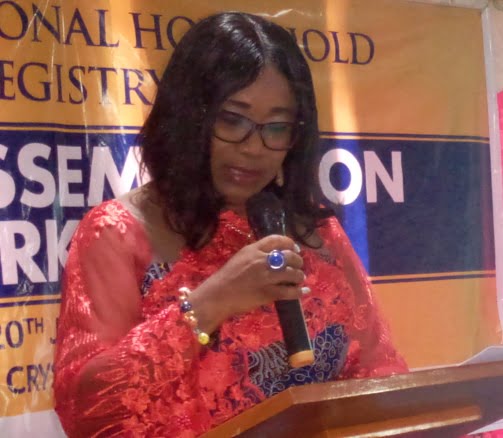The Ghana National Household Registry (GNHR), a monitoring database in Ghana has revealed that its 2018 survey has identified Garu District as the poorest District in the Upper East Region.
Under the chart records, Garu District was declared the extreme poorest of 42.02 percent as compared to the Bolgatanga Municipality with the least of 14. 97 percent.

According to the survey, 184,125 households in the region were registered out of which 28 percent households were categorized as the most extremely poor, 37 percent were poor whereas 35 percent were non-poor households.
The data also revealed that only 15 percent of households in the Upper East Region had benefited from at least one of the social protection programmes.
Speaking to the media, the Minister of Gender, Children and Social Protection, Cynthia Mamle Morrison explained that the data from the GNHR will go a long way to enhance the efficiency and effectiveness amongst the numerous social protection programmes hence stakeholders should give the data the seriousness it deserves.

“I am very committed to seeing to it that we have a credible social register of the poor and vulnerable in Ghana. I, therefore, appeal to all stakeholders in the country to embrace and actively participate in the nationwide GNHR registration exercise to ensure that social benefits are effectively and efficiently targeted at the poor in the country.”
She stressed, “Let us put all hands on deck to help create a harmonious society in which the survival and development of the sexes, children, and the vulnerable are guaranteed.”
The GNHR was established in 2015 as a unit under the Ministry of Gender, Children and Social Protection with the mandate to create a single National Household Register from which all social protection programmes in Ghana will select their beneficiaries.
Upper East Regional Minister, Tangoba Abayage assured stakeholders in the region to play their expected role in the data findings.
She said “The importance of data, especially, to the effective delivery of social protection interventions in Ghana cannot be underestimated. It is therefore our expectation that the data from the GNHR will not only help social protection programmes in the country to effectively target their beneficiaries but it will also be useful for public policy planning and management.”
She anticipated that the data will serve as a weapon for municipal and district assemblies to use to fight poverty and vulnerability which are very endemic in the various communities in the region.
The Ghana National Household Registry, however, has put a comprehensive case management system to manage issues that may come up during or post registration exercise. The case management system affords households the opportunity to report any incorrect information captured about them during the registration exercise and get such information rectified the GNHR officials.
Dr. Prosper B. Laari, National Coordinator of GNHR said plans are far advanced to commence and complete the registration exercise in the Northern, Savanna and North East Regions before scaling up the exercise in the rest of the regions in the country.
“It is worth of note that the GNHR data would not only provide information on social protection issues but it will also help local government authorities to have a baseline information for their developmental agenda”.
Source: A1Radioonline.com|101.1MHZ|Moses Apiah|Ghana


